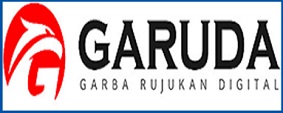Development encyclopedia book of traditional games in Gresik City on learning my cultural theme in kindergarten
DOI:
https://doi.org/10.26555/jecce.v5i1.6185Keywords:
Encyclopedia, Early Childhood, Cultural Theme, Traditional GamesAbstract
Grass motor skill and culture knowledge is important for early childhood development, however in the North Gresik Region found that children have never been introduced to local culture, lack of games variety, and there is no development of books that can support children's knowledge of children's culture and gross motor skills. So that, this study aims to develop an encyclopedia of traditional games. This development research uses the ADDIE model with involved PGRI Dalegan and Muslimat NU 41 Kindergarten (n=30) which are divided into two classes. Data collected using questionnaires and observation. This research produces a product in the form of a traditional game encyclopedia of Gresik City which is feasible and effective to be applied to the learning of my culture theme with a material validation percentage value of 95.83%, media validation of 88.63% which is classified as very good category. Data analysis used independent sample t-test with the value of = 0.000 that there was a difference in gross motor skills between the experimental class and the control class. The results obtained after applying the traditional game encyclopedia of Gresik city, children can understand and carry out activities playing various traditional games of Gresik city. This book is useful for improving children's gross motor skills and introducing local culture to early childhood, especially traditional games
References
Akbari, Abdoli, Shafizadeh, Khalaji, Hajihoosseini, & Ziaee. (2009). The Effect of Traditional Games in Fundamental Motor Skill Development in 79 Year Old Boys. Iran J Pediatr, 19(2), 123–124.
Anggita, G. M., Mukarromah, S. B., & Ali, M. A. (2018). Eksistensi Permainan Tradisional sebagai Warisan Budaya Bangsa. JOSSAE : Journal of Sport Science and Education, 3(2), 55–59. https://doi.org/10.26740/jossae.v3n2.p55-59
Badan Bahasa Kemendikbud. (2018). Pemertahanan Nilai-Nilai Budaya Lokal dalam Pembelajaran. Badanbahasa.Kemendikbud.Go.Id.
Berliana, R. F., Yuliandari, E., & Triyanto. (2018). Penguatan Karakter Kebangsaan Peserta Didik di Sekolah Indonesia (Singapura), Ltd. Educitizen, 3(1), 204–216.
Cahyadi, R. A. H. (2019). Pengembangan Bahan Ajar Berbasis ADDIE Model. HALAQA: ISLAMIC EDUCATION JOURNAL, 3(1), 35–43. https://doi.org/10.21070/halaqa.v3i1.2124
Disparbud Gresik. (2021). Penyerahan Sertifikat Penetapan Warisan Budaya Takbenda Indonesia Tahun 2021. Disparbud.Gresikkab.Go.Id.
Fitri, M., Nur, H. A., & Putri, W. (2020). The Commemoration of Independence Day: Recalling Indonesian Traditional Games. Frontiers in Psychology, 11, 1–8. https://doi.org/10.3389/fpsyg.2020.587196
Gagne’s, M., & Bloom’s. (2021). Intructional Design Models: ADDIE, Methodologies. Education.
Hayati, M., & Asmawi. (2017). Effect of Traditional Games, Learning Motivation and Learning Style on Childhoods Gross Motor Skills. International Journal of Education and Research, 5(7), 55–66.
Hayatin, N., Mahendra, R. A., Al-mubarok, D. A., Renomi, A. D., Setiadharma, E., Setiawan, A. B., Arya, T. F., Dadhee, F., Ramadhan, F., Young, S., Ramadhan, F., & Ghivani, A. Al. (2019). Anapedia – An Open Web-based Encyclopedia for Indonesian Children. Journal of Information Systems Engineering and Business Intelligence, 5(1), 48–56. https://doi.org/10.20473/jisebi.5.1.48-56
Hidayati, N. N. (2020). Indonesian Traditional Games: a Way to Implant Character Education on Children and Preserve Indonesian Local Wisdom. Istawa : Jurnal Pendidikan Islam (IJPI), 5(1), 81–110. https://doi.org/10.24269/ijpi.v5i1.2475
Lestari, G. D., Rinakit Adhe, K., & Arif Al Ardha, M. (2019). Children Motor Development with Authoritarian Parenting During the Industrial Revolution Era 4.0. Advances in Social Science, Education and Humanities Research (ASSEHR), 382(Icet), 87–89. https://doi.org/10.2991/icet-19.2019.21
Lintangkawuryan, Y., & Adiati, M. P. (2017). Recognition of Traditional Games in Indonesia as Cultural Preservation Efforts Through Special Event. Advances in Economics, Business and Management Research, 28(Ictgtd 2016), 216–221. https://doi.org/10.2991/ictgtd-16.2017.42
Maryatun, I. B., Pamungkas, J., & Christianti, M. (2017). Kemampuan Guru Taman Kanak-Kanak Di Yogyakarta Dalam Mengembangkan Tema Pembelajaran Berbasis Budaya Lokal. Jurnal Penelitian Ilmu Pendidikan, 10(1), 1–10. https://doi.org/10.21831/jpipfip.v10i1.16791
Maulida, R., Nadiya, D. Z., Annisa, K., Dewi, Y. K., & Ahsani, E. L. F. (2021). Peran Budaya Indonesia Melalui Kegiatan Ekstrakulikuler dalam Pembentukan Karakter Di Sekolah Indonesia Kuala Lumpur. METODIK DIDAKTIK: Jurnal Pendidikan Ke-SD-An, 17(1), 19–29. https://doi.org/10.24042/biosfer.v11i2.6830
Maulidiyah, E. C., Ningrum, M. A., & Reza, M. (2019). Permainan Anak berbasis Kearifan Lokal. Unesa University Press.
Mutiah, D. (2012). Psikologi Bermain Anak Usia Dini. Penada Media Group.
Nasrum, A. (2018). Uji Normalitas Data untuk Penelitian. Jayapangus Press.
Nurutstsany, E., Hidayat, S., & Hayati, N. (2020). Developing Islamic-Based Botanical Encyclopedia as a learning Resource. Jurnal Tadris Biologi, 11(2), 152.
Permendikbud No. 137 Tahun 2014. (2014). Standart Nasional Pendidikan Anak Usia Dini.
Putra, I. K. M., & Dewi PF, K. A. P. (2018). Peranan Kearifan Lokal Permainan Tradisional Dalam Pendidikan. Kalangwan Jurnal Pendidikan Agama, Bahasa Dan Sastra, 8(1), 22–33. https://doi.org/10.25078/klgw.v8i1.1036
Qotrunnada, W. (2020). Media dan Perkembangan Budaya. PT. Cita Intrans Selaras.
Riduwan. (2013). Skala Pengukuran Variabel-Variabel Penelitian. Alfabeta.
Rusdiansyah. (2020). Pendidikan Budaya di Sekolah dan Komunitas/Masyarakat. Iqro: Jurnal Islamic Education, 3(1), 45–58.
Schopflin, K. (2014). What do we Think an Encyclopaedia. Culturre Unbound Journal of Current Cultural Research, 6(3), 483–503. https://doi.org/10.3384/cu.2000.1525.146483
Septiani, E., Firmansyah, M., Ibrohim, A., Aminuddin, L., & Masfardian. (2017). Dolanan Arek Gresik (R. D. Santoso & F. A. Rofiq (eds.); Cetakan 1). PT. SMELTING.
Suardana, I. N., & Retug, N. (2017). Pelatihan Pembuatan Perangkat Pembelajaran Berbasis Budaya Bali Bagi Guru-Guru Sains Smp Di Kecamatan Buleleng. Jurnal Widya Laksana, 2(1), 9–19. https://doi.org/10.23887/jwl.v2i1.9125
Taheri, L., & Chahian, G. (2015). Restoration of traditional children’s play in Iranian nomadic societies (Case study of Kohgilouyeh and Boyer Ahmad). Children, 2(2), 211–227. https://doi.org/10.3390/children2020211
Tegeh, I. M., Jampel, I. N., & Pudjawan, K. (2014). Model Penelitian Pengembangan. Graha Ilmu.
Downloads
Published
How to Cite
Issue
Section
License
Copyright (c) 2022 Nenny Chanidatus Shofiyah, Kartika Rinakit Adhe, Eka Cahya Maulidiyah, Nurhenti Dorlina Simatupang

This work is licensed under a Creative Commons Attribution-ShareAlike 4.0 International License.
Authors who publish with this journal agree to the following terms:
- Authors retain copyright and grant the journal right of first publication with the work simultaneously licensed under a Creative Commons Attribution-ShareAlike 4.0 International License that allows others to share the work with an acknowledgement of the works authorship and initial publication in this journal.
- Authors are able to enter into separate, additional contractual arrangements for the non-exclusive distribution of the journals published version of the work (e.g., post it to an institutional repository or publish it in a book), with an acknowledgement of its initial publication in this journal.
- Authors are permitted and encouraged to post their work online (e.g., in institutional repositories or on their website) prior to and during the submission process, as it can lead to productive exchanges, as well as earlier and greater citation of published work (See The Effect of Open Access).














